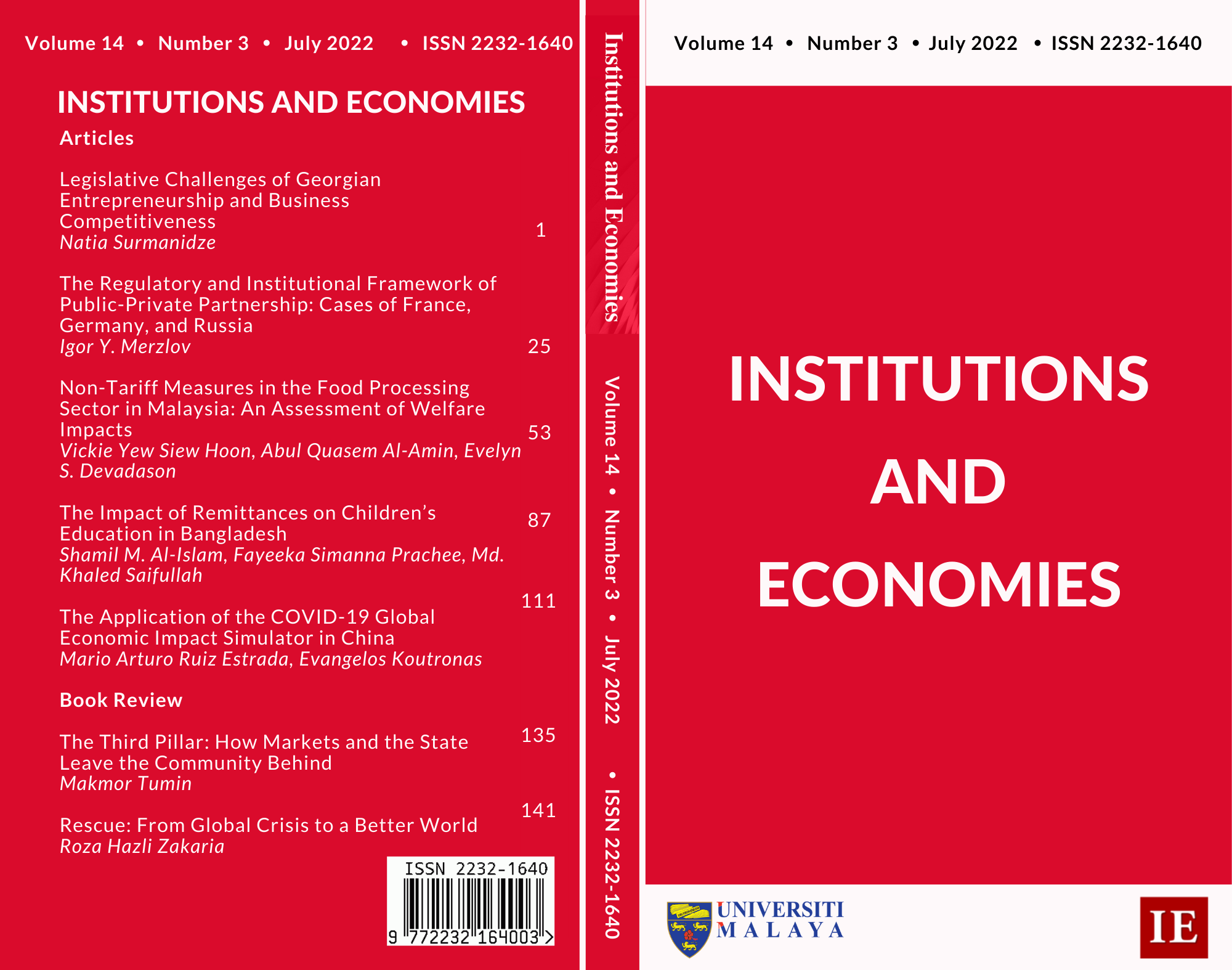The Impact of Remittances on Children’s Education in Bangladesh
DOI:
https://doi.org/10.22452/IJIE.vol14no3.4Keywords:
Remittances, Children’s education, BangladeshAbstract
Inward remittance is one of the major sources of foreign income for Bangladesh and its economic significance at both macro and household levels is evident in the existing literature. This study iassesses the impact of remittances on school enrolment of children in Bangladesh by utilising cross-sectional household-level data obtained from the Household Income and Expenditure Survey 2016. Employing a probit regression method for the analysis, our findings reveal a positive relationship between school enrolment of children and remittances as expected. Furthermore, the education levels of parents are found to have a significant positive impact on the school enrolment of children. Our results also suggest that households with two or three children are more likely to enrol their children in schools as opposed to households with just one child and those with four or more children. However, household location (urban) and gender of children (male) exhibit a negative impact on enrolment. This study suggests that along with the current incentives provided to migrant workers sending remittances, the government can also implement modified or additional incentives to enhance the enrolment of children from remittance-receiving families. Also, to address the issues of lower enrolment among children from urban areas, male children and households with just one child, policymakers should develop new intervention programmes while sensitising the public on the benefits of acquiring education.
Downloads
Downloads
Published
How to Cite
Issue
Section
License
Submission of a manuscript implies: that the work described is original, has not been published before (except in the form of an abstract or as part of a published lecture, review, or thesis); that is not under consideration for publication elsewhere; that its publication has been approved by all co-authors, if any, as well as tacitly or explicitly by the responsible authorities at the institution where the work was carried out. Transfer of copyright to the University of Malaya becomes effective if and when the article is accepted for publication. The copyright covers the exclusive right to reproduce and distribute the article, including reprints, translations, photographic reproductions, microform, electronic form (offline and online) or other reproductions of similar nature.
An author may self-archive the English language version of his/her article on his/her own website and his/her institutions repository; however he/she may not use the publishers PDF version which is posted on www.ijie.um.edu.my. Furthermore, the author may only post his/her version, provided acknowledgement is given to the original source of publication and a link must be accompanied by the following text: The original publication is available at www.ijie.um.edu.my.
All articles published in this journal are protected by copyright, which covers the exclusive rights to reproduce and redistribute the article (e.g. as offprint), as well as all translation rights. No material published in this journal may be reproduced photographically or stored on microfilm, in electronic database, video disks, etc., without first obtaining written permission from the publishers. The use of general descriptive names, trade names, trademarks, etc., in this publication, even if not specifically identified, does not imply that these names are not protected by the relevant laws and regulations.
The copyright owners consent does not include copying for general distribution, promotion, new works, or resale. In these cases, specific written permission must first be obtained from the publishers.








